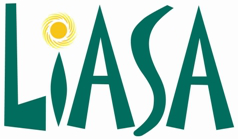Speaker
Mr
Danie Malan
(University of Pretoria)
Description
Malan abst 2.
At first glance it would be easy to say that our workplace is a Zebra. If that is the case good for you but is it true? Do we measure the zebra according to the different races or BEE appointments in our workplace? Do we really understand what cultural diversity is? Why do we need to be concerned about diversity? Workforce diversity is one of the most widely discussed issues in our society today. Since the academic library is a mirror of society, a similar pattern might be found in its ability to function as a workplace. According to Chemers, “Organizations must provide ongoing educational opportunity to develop communication skills necessary for effective collaboration and work across cultures. Interpersonal skills needed to handle such situations of conflict do not come naturally. Volatile issues will come, and employees will need to know how to deal with backlash, diversity, prejudice and stereotyping.” A learning organization with a climate that is responsive to the needs of its staff by being stimulating and supportive is most desirable by persons working in that environment. The learning organization model also makes it possible for staff to continually strive for new approaches in acquiring knowledge and information. When an organization’s culture is inclusive and responsive it creates an environment that is receptive and better able to determine the degree of success for how diversity initiatives will be received, accepted, and implemented.(Love. 2001:73)
In this study diversity is defined as those attributes that make people different, having properties and characteristics of language, geography, gender, race, age, physical ability, sexual orientation, religion, skills and economics. Understanding diversity has become very complex because it also means directing attention to conflict among and within groups. Therefore, a critical need exists to determine ways in which we can identify and establish benchmarks, build upon our strengths, and improve areas that have not been developed. As we search for ways to meet the needs of the academic library staff, the question becomes how to manage this new multicultural workforce as well as maintain the value of diversity. Other than reporting the number of new employees hired, few libraries have found ways to assess and document diversity progress. (Love. 2001:74)
Diversity initiatives can be assessed, and those assessments can be used as a tool to manage and identify areas of continuous growth and development. However, we must be willing to look at all dimensions of diversity, develop new strategies that are inclusive, and work on them consistently and simultaneously. There is support for the notion that faculty, staff, administration, and the institution pay a heavy price for intolerance in the workplace. The cost impacts productivity, work relationships among staff, and how progress in growth and development is perceived. Data gathered through models, pilot studies and documentation can be used as a tool for strategic planning. It can also be used to see if you are a zebra or a horse.
Summary
At first glance it would be easy to say that our workplace is a Zebra. If that is the case good for you but is it true? Do we measure the zebra according to the different races or BEE appointments in our workplace? Do we really understand what cultural diversity is? Why do we need to be concerned about diversity? Workforce diversity is one of the most widely discussed issues in our society today. Since the academic library is a mirror of society, a similar pattern might be found in its ability to function as a workplace.
Primary author
Mr
Danie Malan
(University of Pretoria)

